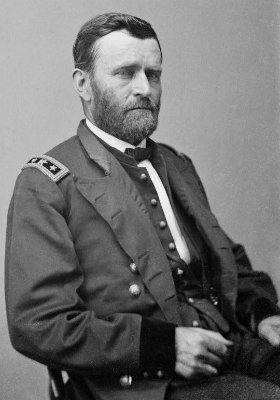How mission command works: Sherman's memoirs (III) show that it is based in trust, and must work as a two-way street

Mission command is a
two-way street, as is illustrated beautifully in the Civil War letters between
General Grant and his subordinate, General Sherman.
The letters,
reproduced in Sherman's memoirs, demonstrated how Grant communicated his
intent to Sherman, then offered his suggested course of action, and finally
asked Sherman for his thoughts. "In this letter," Grant wrote to Sherman upon
hearing that the march across Georgia had reached the sea, "I do not intend to
give you any thing like directions for future action, but will state a general
idea I have, and will get your views after you have established yourself on the
sea-coast."
Grant initially had
some notion that Sherman might move his infantry by sea to Virginia, but
Sherman really wanted to visit the
hard hand of war upon South Carolina. In Georgia he had focused on seizing or
destroying the property of plantation owners, but he next wanted to chastise
the South Carolinians as a whole for starting the Civil War. He wrote to Grant
that, "With Savannah in our possession ... we can punish South Carolina as she
deserves.... I do sincerely believe that the whole of the United States, North
and South, would rejoice to have this army turned loose on South Carolina." He
also thought it would help increase the pressure on Lee in Virginia.
Grant, persuaded by
Sherman's arguments, and his tone, agreed. "Your confidence in being able to
march up and join this army pleases me, and I believe it can be done. The
effect of such a campaign will be to disorganize the South, and prevent the
organization of new armies from their broken fragments.... Without waiting
further directions, then, you may make your preparations to start on your
northern expedition without delay. Break up the railroads in South and North
Carolina, and join the armies operating against Richmond as soon as you can."
Sherman's summary of
mission command comes later in the book, in his conclusions about the lessons
of the Civil War. It is pretty good: "When a detachment is made, the commander
thereof should be informed of the object to be accomplished, and left as free
as possible to execute it in his own way."
Thomas E. Ricks's Blog
- Thomas E. Ricks's profile
- 437 followers



